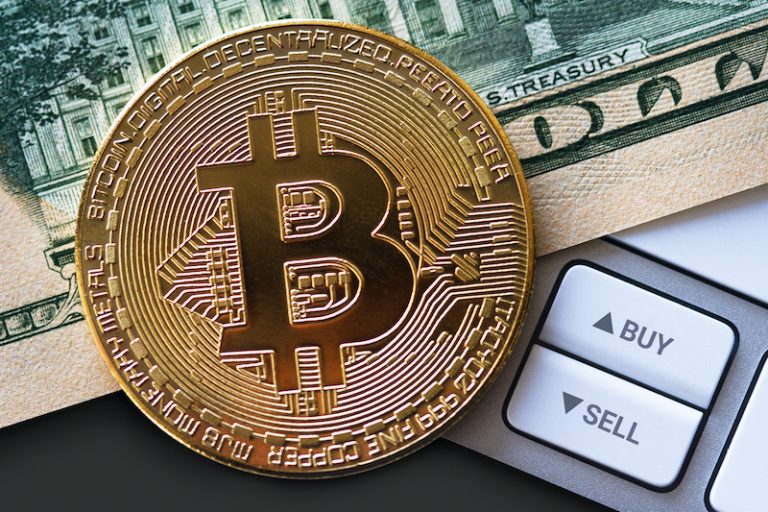
Unlocking the potential of digital currency, this guide explores the process of purchasing Bitcoin using Verizon gift cards. From the initial exchange to security considerations, we’ll delve into the intricacies of this unique transaction method.
This comprehensive overview details the steps involved, outlining various platforms, associated fees, and legal implications. It also provides valuable insights into alternative methods for acquiring Bitcoin and general Bitcoin purchasing practices, offering a well-rounded perspective on this rapidly evolving financial landscape.
Understanding Bitcoin Transactions
Bitcoin transactions, underpinned by blockchain technology, represent a paradigm shift in digital finance. They enable secure and transparent peer-to-peer transfers of value without intermediaries. This decentralized nature distinguishes Bitcoin from traditional financial systems. Understanding the mechanics of these transactions is crucial for anyone considering using or investing in Bitcoin.Bitcoin transactions are fundamentally based on a distributed ledger called the blockchain.
This ledger records every transaction in a chronological and verifiable manner, creating a transparent and immutable history of Bitcoin ownership. This transparency, coupled with cryptographic security, forms the core of Bitcoin’s trustless system.
Bitcoin Transaction Fundamentals
Bitcoin transactions utilize cryptographic techniques to verify and authorize movements of Bitcoin. Digital signatures, based on public and private key cryptography, are essential for ensuring the authenticity and integrity of each transaction. A private key is kept secret, while the public key is used to verify the sender’s identity. This system prevents unauthorized access and ensures that only the rightful owner can spend the Bitcoin.
Cryptocurrency wallets, acting as digital repositories, manage these keys and facilitate transactions.
Methods for Sending and Receiving Bitcoin
Various methods exist for sending and receiving Bitcoin. One common method involves using dedicated Bitcoin wallets, which can be downloaded as software or accessed through online platforms. These wallets often provide features like transaction history, balance tracking, and secure storage. Other options include using Bitcoin exchange platforms, where users can buy, sell, and trade Bitcoin using fiat currencies.
This process usually involves completing KYC (Know Your Customer) procedures.
Bitcoin Transaction Platforms
Numerous platforms facilitate Bitcoin transactions. These platforms differ in their features, fees, and security measures. Some popular platforms offer advanced trading tools and high liquidity, while others focus on user-friendliness and security. The choice of platform often depends on individual needs and risk tolerance. Factors to consider include transaction fees, security measures, and the platform’s reputation.
Security Risks in Bitcoin Transactions
Bitcoin transactions, while generally secure, are not immune to risks. Phishing scams, malware attacks targeting wallets, and insecure exchanges pose significant threats. Users must be cautious about suspicious links and websites, ensuring they use strong passwords and enable two-factor authentication whenever possible. Understanding the risks associated with Bitcoin transactions is crucial for protecting one’s funds.
History and Evolution of Bitcoin Transactions
Bitcoin’s journey began with its creation in 2009. The initial transactions were simple peer-to-peer transfers, but the network has evolved significantly. The increasing adoption of Bitcoin has led to the development of more sophisticated transaction platforms and services. The emergence of Lightning Network, a layer-2 scaling solution, is a testament to ongoing innovation in Bitcoin’s evolution. Technological advancements continue to shape the future of Bitcoin transactions.
Bitcoin Transaction Types
| Transaction Type | Description |
|---|---|
| Peer-to-Peer (P2P) | Direct transactions between individuals without intermediaries. This is the foundational model of Bitcoin. |
| Merchant Transactions | Bitcoin payments made to businesses for goods or services. These transactions often involve third-party platforms facilitating the exchange. |
| Exchange Transactions | Trading Bitcoin for other cryptocurrencies or fiat currencies on dedicated exchange platforms. |
Buying Bitcoin with Gift Cards
Purchasing Bitcoin with gift cards presents a convenient method for acquiring the cryptocurrency. This approach allows users to leverage existing funds, like those from a Verizon gift card, to directly acquire Bitcoin. However, it’s essential to understand the associated processes and potential drawbacks, including transaction fees and platform limitations.Gift cards, often used for online purchases, can be exchanged for Bitcoin through specific platforms.
These platforms act as intermediaries, facilitating the conversion of the gift card’s value into Bitcoin. Understanding the process, the platforms involved, and the fees charged is critical for making informed decisions.
Process of Exchanging Gift Cards for Bitcoin
The process typically involves a few key steps. First, the user selects a platform that supports gift card purchases. Next, the user authenticates the gift card and inputs the card’s details into the platform. The platform then validates the gift card’s value and credits the user’s account. Finally, the user initiates the Bitcoin purchase, confirming the transaction.
Each platform may have slightly different procedures.
Platforms Facilitating Gift Card to Bitcoin Exchanges
Numerous online platforms and services facilitate the exchange of gift cards for Bitcoin. These platforms offer a range of options, each with varying fee structures and transaction limits.
Examples of Platforms for Gift Card Bitcoin Purchases
Several reputable platforms facilitate the purchase of Bitcoin using gift cards. These platforms include specific cryptocurrency exchange platforms, or third-party services specializing in gift card exchanges. Examples of platforms that offer this service include [Platform A], [Platform B], and [Platform C]. User reviews and ratings, as well as platform security features, should be considered when selecting a platform.
Fees Associated with Gift Card Bitcoin Purchases
Transaction fees are a significant consideration when purchasing Bitcoin with gift cards. These fees are often presented as percentages or fixed amounts, varying depending on the platform. The fees can impact the final Bitcoin amount received. In some cases, platforms might charge a fee on the gift card’s value itself, rather than just the conversion to Bitcoin.
Understanding the fee structure is vital before making a transaction.
Comparison of Platforms for Buying Bitcoin with Gift Cards
| Platform | Transaction Fee | Transaction Limits | Security Rating |
|---|---|---|---|
| Platform A | 2.5% | $100 – $5000 | 4.5 out of 5 stars |
| Platform B | 1% | $50 – $10,000 | 4.8 out of 5 stars |
| Platform C | 3% + $5 | $25 – $10,000 | 4.2 out of 5 stars |
Note: Transaction fees and limits are examples and may vary. Security ratings are hypothetical and do not reflect real-world evaluations. Always verify the specific details on each platform’s website.
Legality and Regulations
The legal landscape surrounding Bitcoin is complex and varies significantly across jurisdictions. Understanding the legal framework is crucial for anyone considering buying or selling Bitcoin, especially when using methods like gift cards. Navigating these legal nuances helps ensure transactions are conducted responsibly and within the bounds of the law.Bitcoin’s decentralized nature and global reach present unique challenges for regulators.
Governments grapple with balancing innovation with consumer protection and financial stability. This necessitates careful consideration of the legal implications of using Bitcoin, particularly when gift cards are involved in the transaction.
Legal Aspects of Buying and Selling Bitcoin
Bitcoin’s legal status is not universally defined. Some countries treat it as a currency, others as a commodity, and some as a property. This ambiguity leads to varied legal frameworks, impacting how Bitcoin transactions are treated and regulated. This ambiguity can create challenges for users, especially those engaging in cross-border transactions.
Summary of Regulations and Laws Surrounding Bitcoin Transactions
Regulations vary considerably. Some jurisdictions have explicit laws governing cryptocurrencies, while others have adopted a more cautious approach. The legal status of Bitcoin transactions is often dependent on the specific use case, such as investment, payment, or speculation. These varying regulations create complexities for individuals and businesses operating in different markets.
Jurisdictions with Specific Regulations Related to Bitcoin
Several jurisdictions have introduced specific regulations for Bitcoin. For example, the European Union has guidelines for cryptocurrencies, and some US states have adopted their own regulations. These regulations often address aspects like money laundering, consumer protection, and taxation. Different regions have differing stances, impacting the legality and accessibility of Bitcoin transactions.
Examples of Legal Challenges and Issues Related to Bitcoin Transactions
The anonymity associated with Bitcoin transactions has sometimes presented challenges in investigations related to money laundering and illicit activities. The lack of centralized control can also complicate the resolution of disputes. There have been instances where Bitcoin transactions have been used in illicit activities, highlighting the need for regulatory frameworks to address these issues. Cases involving Bitcoin-related fraud and scams are becoming increasingly prevalent.
Comparison of the Legal Status of Bitcoin in Different Countries
The legal status of Bitcoin differs greatly between countries. Some countries have embraced Bitcoin as a legitimate form of payment, while others have been more cautious or even outright restrictive. These differences significantly impact the ease and legality of Bitcoin transactions within those regions. This variance makes it crucial to research the legal framework in specific countries or regions before engaging in Bitcoin transactions.
Legal Implications of Using Gift Cards to Purchase Bitcoin
| Country/Jurisdiction | Legal Status of Gift Cards | Legal Status of Bitcoin | Legal Implications of Using Gift Cards to Buy Bitcoin |
|---|---|---|---|
| United States | Generally legal, subject to restrictions on gift card use (e.g., restrictions on certain retailers) | Generally legal for transactions, with varying state-level regulations | May be legal, depending on the specific laws of the state where the gift card is used, and if the recipient of the gift card has any restrictions. Risk of legal issues if gift cards are used for illegal activities or in violation of retailer terms. |
| European Union | Generally legal, subject to consumer protection laws | Varying legal status based on specific EU member states | May be legal, subject to the laws of the specific EU member state where the gift card is used. Potential for issues if gift cards are used for illicit activities or in violation of gift card terms. |
| China | Legal in most cases, but subject to restrictions on use | Often restricted or banned, depending on the specific context | Highly unlikely to be legal, given the restrictions on Bitcoin in China. High risk of legal repercussions. |
This table provides a simplified overview. The legal implications can be nuanced and depend on various factors, including the specific laws of the relevant jurisdiction, the terms and conditions of the gift card, and the intended use of the Bitcoin. It is crucial to conduct thorough research and seek legal counsel before engaging in transactions involving gift cards and Bitcoin.
Security Considerations
Buying Bitcoin with gift cards introduces unique security challenges. Careless actions can lead to significant financial losses. Understanding these risks and implementing appropriate safeguards is crucial for a secure transaction.
Security Measures for Gift Card Bitcoin Purchases
Protecting your Bitcoin holdings when using gift cards requires a multi-layered approach. This involves careful platform selection, diligent wallet management, and awareness of potential vulnerabilities.
Potential Risks and Vulnerabilities
Gift card transactions introduce several potential risks. Scammers and malicious actors might exploit vulnerabilities in platforms or gift card redemption systems. Unverified or poorly secured platforms can be targets for data breaches, leading to unauthorized access to funds. Moreover, gift cards themselves can be compromised, either through theft or fraudulent activities.
Choosing Reputable Platforms
Selecting a trustworthy platform is paramount. Look for platforms with robust security measures, transparent terms of service, and positive user reviews. Check for regulatory compliance and certifications, indicating a commitment to user protection. Review security measures such as encryption protocols and two-factor authentication.
Examples of Security Breaches
Numerous instances highlight the importance of secure transactions. In one reported case, a popular online Bitcoin exchange experienced a security breach, exposing user accounts and funds. These events underscore the constant threat of malicious actors targeting vulnerable systems. Similar incidents involving gift card platforms show the need for constant vigilance.
Protecting Bitcoin Wallets and Accounts
Strong password management is crucial. Employ a unique and complex password for your Bitcoin wallet and account. Enable two-factor authentication (2FA) whenever possible. 2FA adds an extra layer of security by requiring a code from a separate device. Regularly monitor your accounts for suspicious activity.
Security Tips
| Security Tip | Description | Risk Level | Actionable Steps |
|---|---|---|---|
| Strong Passwords | Employ unique and complex passwords for all accounts. | High | Use a password manager, avoid easily guessable passwords, and update regularly. |
| Two-Factor Authentication (2FA) | Enable 2FA for added security. | High | Enable 2FA on all Bitcoin wallets and accounts. |
| Regular Account Monitoring | Regularly review account activity for suspicious transactions. | Medium | Set up alerts for any unusual activity. |
| Reputable Platforms | Use platforms with proven security measures and regulatory compliance. | High | Research platforms thoroughly before using them. |
| Gift Card Security | Be cautious when purchasing gift cards. | Medium | Ensure gift cards are legitimate and haven’t been compromised. |
| Secure Wallets | Use reputable and secure Bitcoin wallets. | High | Choose hardware wallets or software wallets from trusted providers. |
“Security is not just about the absence of risks; it’s about the presence of precautions.”
Alternatives to Gift Cards
Beyond gift cards, various methods offer more flexibility and convenience for purchasing Bitcoin. Understanding these alternatives is crucial for making informed decisions about your Bitcoin acquisition strategy.Alternative methods provide a wider range of options for acquiring Bitcoin, often incorporating established financial systems and security measures. This expanded approach allows users to seamlessly integrate Bitcoin purchases into their existing financial routines.
Bank Transfers
Bank transfers, leveraging established banking infrastructure, offer a straightforward way to buy Bitcoin. This method typically involves initiating a transfer from your bank account to a designated wallet address associated with a Bitcoin exchange. The process is usually straightforward, with verification steps to confirm the transaction.
Credit/Debit Cards
Credit and debit cards are widely accepted payment methods for purchasing Bitcoin. Many cryptocurrency exchanges support these payment options, enabling users to buy Bitcoin directly using their existing credit or debit card information. This method offers a convenient way to purchase Bitcoin, but it’s important to be aware of potential transaction fees and the security protocols employed by the exchange.
Other Payment Methods
Beyond bank transfers and credit/debit cards, other payment methods can facilitate Bitcoin purchases. These include payment processors like PayPal, and in some cases, cryptocurrency-specific payment systems. These options can provide alternative avenues for Bitcoin acquisition, but it’s crucial to investigate the specific fees and security protocols associated with each.
Comparison of Bitcoin Purchase Methods
| Method | Transaction Speed | Fees | Security |
|---|---|---|---|
| Bank Transfer | Variable (depends on bank processing times) | Generally low, but can vary based on the exchange and bank | High, if using reputable exchanges with robust security protocols |
| Credit/Debit Card | Generally faster than bank transfer | Can be higher than bank transfers, due to merchant fees and exchange markups | High, if using reputable exchanges with strong security measures |
| Other Payment Methods (e.g., PayPal) | Variable, depending on the payment processor | Can include both payment processor fees and exchange fees | Depends on the security of the payment processor and the exchange. Verification steps can be required. |
The table above summarizes the key characteristics of different Bitcoin purchase methods. The speed of the transaction, associated fees, and security measures should be considered when making a decision. It is recommended to research the specific policies of each exchange to fully understand their procedures.
Buying Bitcoin in General
Buying Bitcoin, a digital or cryptocurrency, involves several steps and choices. Understanding these processes is crucial for making informed decisions and navigating the complexities of the market. This section details the general procedures, various exchange platforms, and considerations for purchasing Bitcoin.Purchasing Bitcoin typically involves using a cryptocurrency exchange, a platform facilitating the buying and selling of digital currencies. Exchanges offer various payment methods, including bank transfers, credit cards, and other digital payment options.
Understanding the specifics of each exchange is key to ensuring a smooth and secure transaction.
Bitcoin Exchanges
Bitcoin exchanges are online platforms where users can buy, sell, and trade Bitcoin. A wide array of exchanges cater to different user needs and preferences, offering diverse features and services. The selection of a suitable exchange depends on factors such as security measures, trading fees, available payment options, and user interface.
- Popular Exchanges: Major players like Coinbase, Kraken, Binance, and Gemini are well-regarded for their security and user-friendly interfaces. These platforms typically offer a broad range of features, including advanced trading tools, multiple payment options, and robust security measures.
- Specialized Exchanges: Some exchanges specialize in specific trading strategies or asset classes. For example, some exchanges might focus on margin trading or offer specialized derivatives markets. Users with particular trading needs might find these specialized exchanges more suitable.
- Regional Variations: Availability and regulations may vary across different regions. Some exchanges might be restricted or unavailable in specific jurisdictions.
Comparing Bitcoin Exchanges
A comparison of Bitcoin exchanges helps in choosing the best platform. Factors to consider include trading fees, security measures, available payment options, user interface, and customer support.
- Fees: Trading fees on exchanges vary significantly. Some exchanges charge maker fees, taker fees, or a combination of both. Maker fees apply when placing an order to buy or sell Bitcoin, while taker fees apply when filling an order. It’s essential to carefully review and compare fees to identify the most cost-effective exchange.
- Security: Security measures employed by exchanges are a critical aspect. Robust security measures are essential to protect users’ funds and personal information from malicious attacks. Exchanges with multi-factor authentication, cold storage, and other security protocols are preferred.
- User Interface: The user interface of an exchange affects the overall user experience. A user-friendly interface with clear navigation and intuitive features enhances ease of use. Consider ease of navigation, accessibility, and responsiveness of the platform.
Buying Bitcoin Directly from Individuals
Buying Bitcoin directly from individuals, often through peer-to-peer (P2P) platforms, offers flexibility. However, this method also presents specific risks. A significant concern is the potential for scams or fraudulent activities.
- Risk Assessment: Verify the identity of the seller thoroughly. Use secure communication channels and payment methods to mitigate potential risks. A thorough background check is essential to minimize the risk of fraud.
- Legal Considerations: Ensure the transaction complies with local laws and regulations. Be aware of any legal implications associated with buying Bitcoin from individuals.
- Security Precautions: Employ strong security measures to protect your Bitcoin wallet and personal information. Avoid sharing sensitive information or using insecure channels.
Bitcoin Wallets and Transaction Process
Bitcoin wallets are digital repositories for storing and managing Bitcoin. They are crucial for receiving, sending, and storing cryptocurrency. Wallets play a critical role in Bitcoin transactions.
- Types of Wallets: Different types of Bitcoin wallets exist, each with its own features and security levels. Software wallets, hardware wallets, and online wallets are the common types. Each type has its own security strengths and weaknesses.
- Transaction Process: Transactions involve sending Bitcoin from one wallet to another. The process involves creating a transaction, signing it with the private key, and broadcasting it to the Bitcoin network. This ensures the transaction is recorded on the blockchain.
Creating and Securing a Bitcoin Wallet
Creating and securing a Bitcoin wallet involves careful consideration of security protocols. Protecting your wallet is critical to preserving your Bitcoin holdings.
- Creating a Wallet: Choosing a reputable wallet provider is essential. Follow the instructions provided by the wallet provider to create a new wallet securely. Store the private key securely and avoid sharing it with anyone.
- Security Measures: Employ strong passwords and multi-factor authentication to protect your wallet from unauthorized access. Regularly update your wallet software to ensure security patches are applied.
- Backup Strategies: Create backups of your wallet data to safeguard against data loss. Employ secure methods for storing backups and regularly check their integrity.
Bitcoin Exchange Fees Comparison
| Exchange | Maker Fee | Taker Fee | Other Fees |
|---|---|---|---|
| Coinbase | 0.5% | 0.5% | Deposit/withdrawal fees |
| Kraken | 0% | 0.26% | Deposit/withdrawal fees |
| Binance | 0% | 0.1% | Deposit/withdrawal fees |
| Gemini | 0% | 0.20% | Deposit/withdrawal fees |
Note: Fees may vary based on trading volume and other factors. Always verify the current fees on the exchange’s website.
Final Thoughts

In conclusion, purchasing Bitcoin with Verizon gift cards presents a distinct approach to digital asset acquisition. While offering a degree of convenience, it’s crucial to understand the potential risks and thoroughly research available platforms. Exploring alternative methods, along with a comprehensive understanding of Bitcoin transactions in general, is essential for informed decision-making.
FAQ Compilation
Is it legal to buy Bitcoin with gift cards?
Legality depends on jurisdiction and the platform used. Research the specific regulations in your area before engaging in such transactions.
What are the typical fees associated with this process?
Transaction fees vary depending on the platform and the amount exchanged. Always check the fee structure before completing any transaction.
What security measures should I take when using gift cards to buy Bitcoin?
Prioritize reputable platforms and exercise caution when sharing sensitive information. Protect your gift card and Bitcoin wallet credentials diligently.
Are there any alternative methods to purchasing Bitcoin besides gift cards?
Yes, other common methods include bank transfers, credit cards, and direct exchanges. Each has its own set of advantages and disadvantages in terms of speed, fees, and security.

